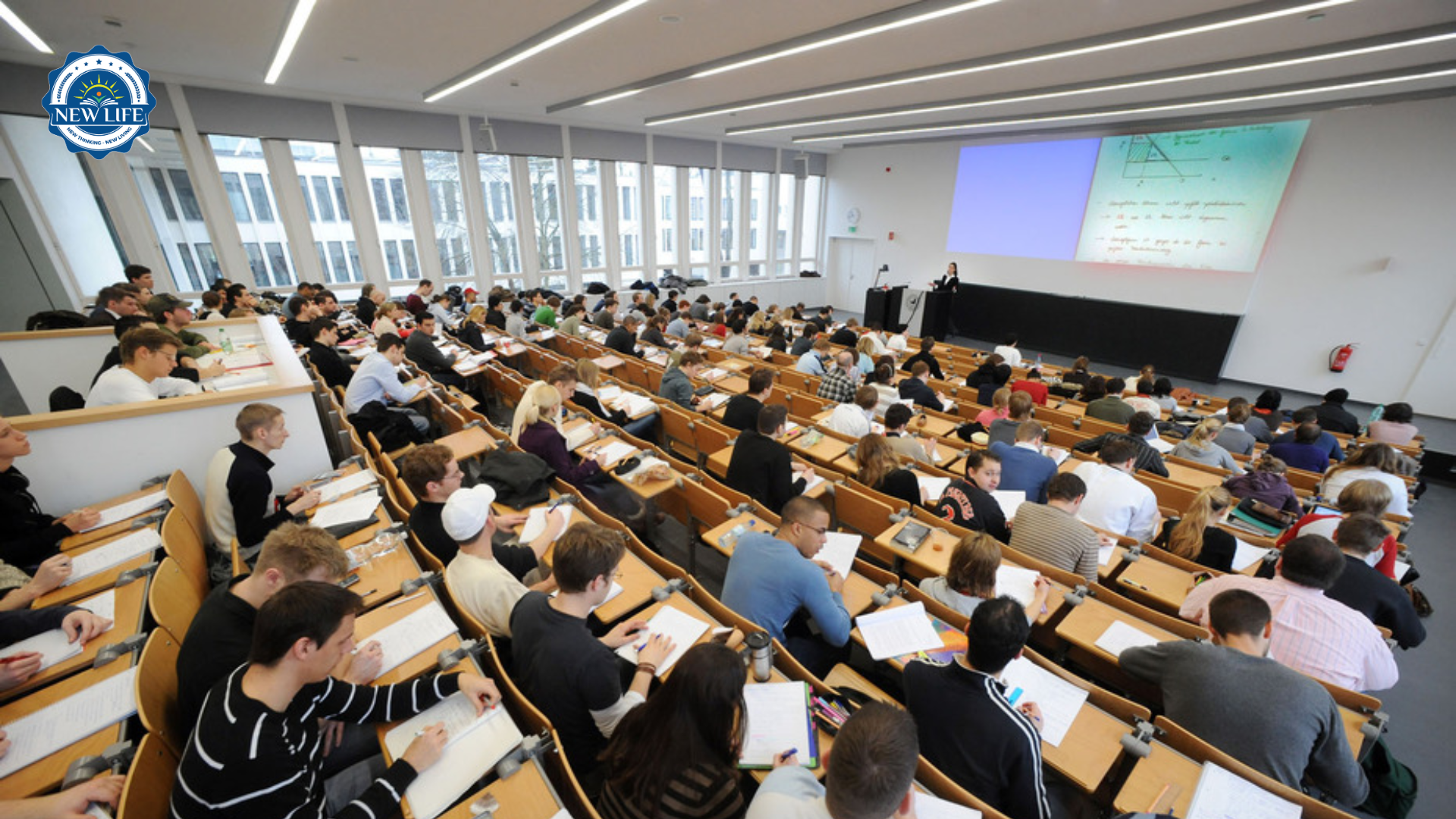Study Abroad
GERMANY ANNOUNCES POLICIES AND REGULATIONS BENEFICIAL TO INTERNATIONAL STUDENTS
- 23/08/2024
- Posted by: New Life
- Category: Experiences in Germany

In a significant recent move, Germany announced the relaxation of a series of policies and regulations aimed at attracting and supporting international students. These changes not only reduce legal barriers but also create favorable conditions for students to study and live in the country. This decision reflects Germany’s commitment to enhancing the appeal of its education system while supporting international students on their journey of study and cultural integration.
Let’s summarize the key highlights of the new regulations with New Life!
Regulation on working hours
One of the main points of the new regulations is the limit on working hours for international students. According to the regulation, students are now allowed to work up to 140 days per year, 20 more than before, and a maximum of 20 hours per week during the study period (applies to students enrolled in language courses, transition programs, those with a vocational training residence permit, and interns).
This regulation helps students earn additional income for personal needs, stabilizing their finances to minimize the impact of work on their academic results.
“This creates flexibility, helping students ensure their livelihoods and transition more easily into the labor market. It also makes Germany more attractive to international students who wish to study and stay after graduation as skilled workers,” the Ministry of Education and Research stated in an announcement.
Visa and Work Permit Requirements
Simplification of foreign worker permits: Previously, candidates in certain special fields such as healthcare and law had to go through a diploma recognition process before entering the country, which took about 4 months. Under the new regulations, this process will take place after the worker arrives in Germany. The requirements remain the same. Workers must have a contract, a professional certification with at least two years of training, or a university degree, and a German language certificate at level A2.
For vocational students:
- Lowered age limit: The age limit for applying is now 35, instead of 25 under the old regulations. The new regulation has been in effect since early March. This applies to students from non-EU countries.
- Increased maximum residency for this group from 6 to 9 months.
- Reduced German language requirement from B2 to B1.

Requirements for International Students
It is important to note that Germany requires international students to have a valid work permit before starting any job. Any work without a permit will be strictly dealt with. At the same time, students must maintain a valid visa status to continue residing and studying in Germany.
International students must also comply with the requirements of participating in specific courses and training programs. This ensures they can complete their studies on time and gain the necessary skills for their future careers.
Reasons for Germany’s Policy Changes
These changes come in the context of Europe’s largest economy facing a severe shortage of skilled workers. According to Reuters, forecasts show that Germany will be short of 7 million skilled workers by 2035 due to an aging population.
The German Academic Exchange Service (DAAD) emphasizes the role of international students in addressing this issue. Early last year, DAAD called on the government, universities, and businesses to develop strategies to attract and double the number of international students staying after graduation, to around 50,000 people per year by 2030.
“They are highly qualified and integrate well; we should strategically harness their potential as skilled workers,” said Dr. Joybrato Mukherjee, DAAD President.
In the last academic year, there were about 458,000 international students in Germany, a record high, and an increase of more than 50% compared to 10 years ago. The most popular field for international students is Engineering (over 31%), followed by Law, Economics, and Social Sciences.

Benefits of Studying in Germany for International Students
There are three reasons why more and more foreign students choose to study in Germany:
First, most public universities have no tuition fees, with international students only needing to pay administrative fees of 150-250 euros (4-6.6 million VND) per year. Second, the average cost of living here is about 930 euros/month (1,000 USD), lower than in the UK or the US (1,250-1,500 USD). Finally, after graduation, students have the opportunity to stay and work for up to 18 months. According to Study in Germany, an information site about studying in Germany, nearly 70% of international students want to stay and find work after graduation.
These regulations aim to facilitate international students while ensuring that they can complete their studies most effectively. If you are planning to study in Germany, make sure you are aware of these regulations to avoid unnecessary troubles!
And don’t forget, New Life is always by your side to help make your dream of studying in Germany come true!

NEW LIFE – GERMAN VOCATIONAL STUDY
Website: https://newlife-jsc.com/
Hotline: 028 6286 3699
Email: info@newlife-jsc.com

